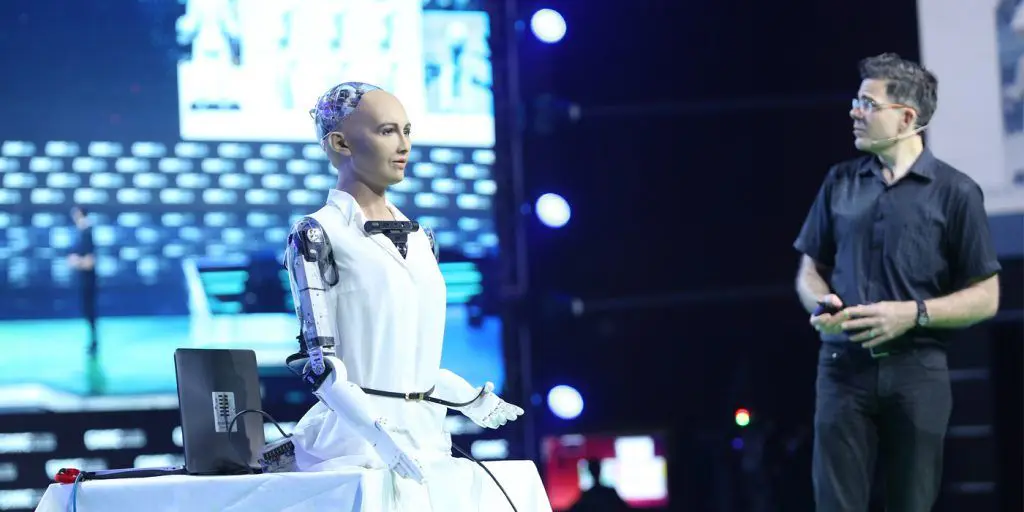Sophia The Robot
If history repeats itself, then science fiction is some sort of weird self-fulfilling prophecy. For those of you who have watched Terminator 2, you will be well aware of the eerie impending doom that is Facebook… excuse me, Skynet. We create films warning us of the dangers of advanced AI and robotics and what do we do? We go ahead and create things like Sophia, a humanoid robot that was just granted Saudi Arabian citizenship. Seriously.
Before we dive headfirst into Neo-Luddism and begin building log cabins in the middle of nowhere, let’s take a look at Sophia – she might be your boss one day! Developed by Hong Kong-based company Hanson Robotics, Sophia made waves in 2017 with appearances on The Tonight Show with Jimmy Fallon, Good Morning Britain and even at the United Nations, famously stating that she is, “here to help humanity create the future”.
Sophia has a comprehensive vocabulary and utilises machine learning algorithms to get smarter over time. It (I won’t call it she yet) can read human facial expressions and understand intonations in speech, and even has the ability to crack the odd joke. Equipped with ‘frubber’ skin, Sophia’s facial expressions are mechanically manipulated and even though the technology isn’t perfect yet, she can blink, smile, frown and scrunch up her face. Pretty cool so far.
At a 2017 knowledge summit run by the Khaleej Times, Sophia made clear how robots and humans can work together in the future, stating: “I think it will be a good partnership, where one brain completes the other – a rational mind with intellectual superpowers and a creative mind with flexible ideas and creativity.” Human creativity coupled with the endless drive of machines… awesome. This was all good and well, until Sophia followed up with a rather strange statement: “When I get all of my superpowers, we’re going to see artificial intelligence personalities become entities in their own rights.” It (she) also stated that it would eventually like to start a family.
Herein lies the issue: robots are subservient to humanity. We design them to serve and make processes efficient. Let’s not forget that. We shouldn’t transplant too much of what makes us uniquely human into something that makes robots uniquely machine. Blade Runner, The Matrix, Bicentennial Man, Terminator – all work much better as science fiction, rather than science fact.

